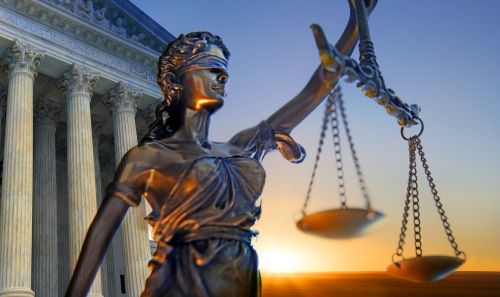


The overwhelming majority of crimes in the United States are investigated and prosecuted by state agencies. But crimes that cross state lines or involve violations of federal laws are investigated by the Department of Justice and its federal investigative agencies. Numerous federal investigative agencies are tasked with researching specific violations of federal laws. Once they complete their investigations, they turn the material over to prosecuting attorneys who file charges in federal court.
To better understand how a federal criminal case is investigated, it is beneficial to understand the federal agencies that handle criminal investigations, what they are responsible for, and the crimes they investigate.
The FBI is the largest law enforcement agency in the country. The FBI primarily investigates violations of federal law, including drug crimes and financial crimes. They also examine threats of terrorism and perform counterintelligence. The FBI frequently works with state and local governments and international police (INTERPOL) to address potential national security threats.
The DEA is the federal investigative agency responsible for enforcing laws relating to controlled substances. They investigate crimes that involve the illegal distribution of controlled substances and prescription medication by healthcare providers, pharmacists, and others.
In addition to collecting taxes on behalf of the federal government, the IRS has an investigative unit that investigates federal tax crimes, such as tax fraud, tax evasion, and money laundering, as well as crimes involving drug distribution, healthcare fraud, and bank fraud.
The Securities and Exchange Commission (SEC) regulates and enforces investment laws. This federal agency primarily investigates white-collar crimes and financial crimes involving brokerages, investment funds, and financial advisors.
The SEC does not bring criminal charges. Instead, they bring civil enforcement actions. However, they can be called upon to provide evidence in criminal proceedings brought by the Department of Justice.
The Secret Service is most well known for protecting the President and other federal officials and foreign dignitaries. But the Secret Service was actually established in 1865 to investigate counterfeit currency and other crimes related to the country’s monetary and financial systems. Secret Service agents investigate crimes involving counterfeit currency, credit card fraud, fraud against financial institutions, computer and technology fraud, identity fraud, and money laundering.
The Department of Homeland Security was formed to investigate domestic threats to national security. DHS often works with state and local governments and is called upon to investigate cases that could threaten national security.
Postal inspectors investigate federal crimes involving the use or abuse of the postal service. These crimes often involve the theft of mail or mail fraud but also include tax evasion, health care fraud, drug distribution, and more.
The Bureau of Alcohol, Tobacco and Firearms is the federal investigative agency responsible for crimes related to the illegal use of firearms and explosives and the illegal diversion of alcohol and tobacco products.
The U.S. Immigration and Customs Enforcement agency was created after 9/11 as part of the Department of Homeland Security (DHS). It was formed by the merger of the Immigration and Naturalization Service (INS) and the U.S. Customs Service.
ICE investigates and enforces immigration and border control laws, customs violations, and related offenses such as identity fraud, narcotics distribution, money laundering, cyber crimes, and other white-collar criminal offenses.
If a federal investigative agency contacts you, you need experienced legal representation.
Federal criminal defense attorney Hope Lefeber has extensive experience representing and defending people under investigation or accused of crimes in federal court.
To learn more about Hope Lefeber and the cases she handles, contact us today to schedule a confidential consultation to discuss your situation and how she can help.
© 2024 Law Offices of Hope Lefeber| View Our Disclaimer | Privacy Policy